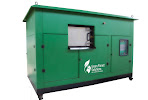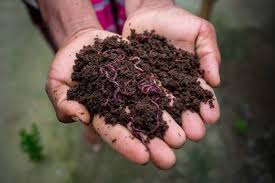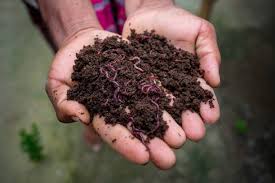Why On-Site Composting Is Better Than Outsourced Waste Management in UAE
Why on-site composting is better than outsourced waste management in UAE is a question more hotels, restaurants, residential communities, and commercial facilities are asking as waste costs rise and sustainability regulations tighten.
For years, UAE businesses relied on third-party waste collection. Today, that model is proving expensive, inefficient, and risky. This expert guide by Green Planet Solutions Pune explains why on-site composting is the smarter, future-ready alternative.
Target Audience & Buyer Intent
- Hotels & Resorts in Dubai, Abu Dhabi, Sharjah
- Restaurants, Cafés & Cloud Kitchens
- Residential Communities & Developers
- Hospitals, Malls & Corporate Facilities
- Facility Managers & ESG Decision-Makers
The Core Problem with Outsourced Waste Management in UAE
- Rising collection and transportation costs
- Limited control over waste handling
- Compliance risks and penalties
- No measurable sustainability impact
This is exactly why on-site composting is better than outsourced waste management in UAE for modern businesses.
Why On-Site Composting Is Better Than Outsourced Waste Management in UAE
1. Significant Cost Savings Over Time
Outsourced waste management involves recurring monthly fees. On-site composting converts waste into value.
- Lower transportation costs
- Reduced landfill charges
- Payback period of 12–24 months
2. Complete Control Over Organic Waste
When waste is processed on-site, businesses control:
- Segregation quality
- Processing timelines
- Hygiene and cleanliness
3. Better Compliance with UAE Regulations
UAE municipalities increasingly encourage on-site waste reduction. On-site composting supports:
- Dubai Municipality sustainability goals
- Tadweer (Abu Dhabi) waste reduction initiatives
- UAE Net Zero 2050 strategy
4. Reduced Carbon Footprint
Outsourced waste management depends on fuel-heavy transportation. On-site composting eliminates:
- Daily waste truck movement
- Excess fuel emissions
- Indirect environmental impact
5. Odour, Pest & Hygiene Control
Modern composting machines designed for UAE climates offer:
- Advanced odour control
- Closed-system processing
- Improved hygiene standards
6. Measurable ESG & Sustainability Impact
Unlike outsourced waste management, on-site composting provides:
- Quantifiable waste diversion data
- ESG reporting support
- Green branding advantages
On-Site Composting vs Outsourced Waste Management: Quick Comparison
- Cost: On-site composting wins
- Control: On-site composting wins
- Compliance: On-site composting wins
- Sustainability: On-site composting wins
Why UAE Businesses Trust Green Planet Solutions
Green Planet Solutions provides climate-optimized composting machines and end-to-end support—installation, maintenance, and AMC—tailored for UAE conditions.
🔔 Dedicated CTA – Free On-Site Composting Assessment
Still outsourcing waste management? Discover how much you can save.
GET A FREE ON-SITE COMPOSTING COST COMPARISON
SEO Image Alt Attributes
- alt=”why on-site composting is better than outsourced waste management in UAE”
- alt=”on-site composting machine UAE”
- alt=”outsourced waste management vs composting UAE”
Common Words
waste, composting, management, UAE, business, cost, sustainability
Uncommon Words
decentralization, biofiltration, thermophilic, waste-to-resource, circularity
Power Words
better, proven, essential, smarter, future-ready, high-impact
Emotional Words
confidence, control, trust, relief, responsibility, pride
High-Value Lead Magnets (Repeated CTAs)
DOWNLOAD FREE UAE WASTE COST SAVINGS REPORT
REQUEST A FREE FOOD WASTE AUDIT
BOOK A LIVE ON-SITE COMPOSTING DEMO
Analytics, Testing & Follow-Up Strategy
- Track CTA clicks via Google Analytics & GTM
- A/B test headlines and CTA placement
- Email + WhatsApp follow-ups after form submission
- Send case studies, ROI calculators & proposals
Hashtags (UAE + Sustainability Focus)
#OnSiteCompostingUAE #WasteManagementUAE #SustainableUAE #GreenBusinessUAE #HotelWasteManagement #RestaurantWasteSolutions #NetZero2050 #CommercialComposting
Green Planet Solutions
Website: www.thegreenplanetsolutions.com
Follow us on all social media platforms for composting, waste management, and sustainability insights.






